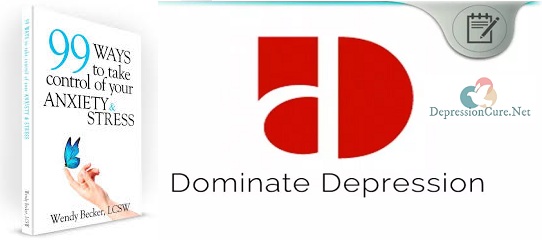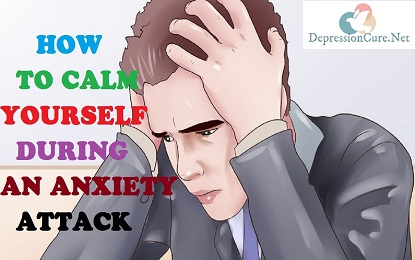Introduction
Chronic anxiety is a general anxiety disorder that involves nervousness, constant worry, and tension. It goes far ahead of being nervous before a date or worrying about a work project.
Chronic anxiety is a persistent, severe, and excessive problem that can become extremely disturbing to a person’s daily life, including his or her health.
Anxiety causes feelings of dread, constant worry, the inability to relax, and the feelings of being overwhelmed. It is also entirely possible for anxiety to manifest into the physical symptoms; it not only affects the mental health but also put a lousy effect on physical health too.
While the emotional and behavioral symptoms of chronic anxiety are more generally known, these ten physical symptoms which can also be signs of an anxiety disorder:
Click Here To Read: 20 Ways to calm your mind – How to calm your mind
Chronic Anxiety
Muscle Pain
One of the most common physical symptoms which are associated with anxiety is muscle pain. Stress can cause immense pain in the muscles as well as irritation.
Headaches
Headaches are another one of the common physical symptoms of anxiety. Stress causes tension in the muscles of our body, which can cause constant headaches. Excess use of caffeine (tea, coffee, cold drink, etc.) can also make headaches worse.

Fatigue
Chronic anxiety is highly stressful. Stress from anxiety can lower the adrenal glands, which plays an essential role in maintaining the overall health and balance in our body. Fatigue and laziness can result from lower adrenal glands.
Click Here To Read: Top 25 Ways To Reduce Stress – How To Reduce Stress
Digestive Problems
Chronic anxiety has also been linked to poor digestion, which includes irritable bowel syndrome. When our brain isn’t functioning correctly, our digestive system may also experience some problems.
Serotonin is a neurotransmitter, which calms down our mind, is mainly formed in the gastrointestinal tract. Anxiety can also cause low levels of serotonin and poor digestion.
Sugar Cravings
Sugar encourages a feeling of pleasure before beginning a crash. Those who are suffering from anxiety may crave sugar when feeling distressed. They are seeking an enjoyable atmosphere when they are upset or stressed.
Trouble in Sleeping
Suffering from chronic anxiety can make it highly challenging to be able to fall asleep or relax. The brain is speedily firing and doesn’t slow down just because it’s time for bed to sleep. Those who are suffering from anxiety have the trouble of shutting their brain off at night.
Mood Swings
When the brain is filled with worrisome and negative thoughts, then the patience of the person is reduced. Those who are suffering from chronic anxiety may have a habit of lashing out or snap at someone who is asking for attention.
Click Here To Read: 25 Ways To Forget Unwanted Memories – How to Forget a Bad Memory
Excessive Worrying
Excessive worrying is one of the most common symptoms of an anxiety disorder.
The worrying connected with the anxiety disorders is unreasonable to the events that produce it and typically occurs in response to the standard, everyday situations.
To be advised, a sign of generalized anxiety disorder, the worrying should occur on most of the days for at least six months and become very difficult to control.
The worrying must also be intrusive and severe, which making it difficult to concentrate, focus, and accomplish daily works.
People with the age of 65 or less are at the highest risk of generalized anxiety disorder, especially when those people are single, also have many life stressors, and have a lower socioeconomic status.
Click Here To Read: 20 Ways To Do Meditation – How To Do Meditation
Irritability
Most of the people who are with anxiety disorders also sense excessive irritability.
According to one of the recent study which includes over 6,000 adults people, more than 90% of those people are suffering from generalized anxiety disorder which reported feeling highly irritable during the periods when their anxiety disorder was going to its worst.
As per compared to the self-reported worriers, young adults and middle-aged adults with a generalized anxiety disorder reported more than double as much irritability in their day-to-day life.
Given that anxiety is identified with the excessive worrying and high arousal, it is not stunning that the irritability is a common symptom in anxiety.

Lack of Focus
Someone who is suffering from anxiety may have a hard time focusing or concentrating because their brain is generating a million other things in their mind.?
A suffering person might be trying to work, but his or her mind is going somewhere else, which causes a lack of focus.
There is no sudden fix for an anxiety disorder, but a balanced and healthy lifestyle can help people keep symptoms at bay.?
If you are battling with anxiety, then visit a health care doctor or professional, and acknowledge making these essential changes in life.
- Take enough sleep.
- Limit your caffeine (drink tea, coffee, cold drink in less amount). Avoid in the evening.
- Avoid alcohol and nicotine, especially in the evening.
- Eat a proper healthy, balanced diet.
- Do exercise regularly.
- Try meditation and yoga.
- Practice deep breathing.
- Establish a reasonable schedule for everything.
- Identify unhealthy relationships.
- Talk it out when you start feeling overwhelmed.
- Know that to whom you avoid when you are feeling anxious.
Note: Depression Cure does not provide any type of medical advice, diagnosis, or treatment.





